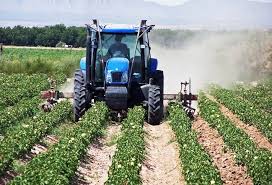Located 700 kilometers off the coast of West Africa, this island nation receives minimal rainfall and faces significant water scarcity. Yet, through innovative approaches and strategic investments, Cabo Verde has managed to sustain its agricultural sector.
The country’s agricultural sector has historically been constrained by a lack of water and arable land. To address these challenges, the government has implemented several strategies, the widespread adoption of drip irrigation systems has significantly reduced water consumption in agriculture. solar-powered desalination plants provide a reliable source of water for irrigation, particularly in arid regions, the government has invested in training programs to equip farmers with modern agricultural techniques, and the promotion of climate-resilient crop varieties and sustainable farming practices has helped mitigate the impacts of climate change.
Cabo Verde’s success story offers valuable lessons for other countries in West Africa. By embracing innovative solutions and prioritizing sustainable development, the nation has demonstrated that it is possible to overcome adversity and build a prosperous agricultural sector.
As the region continues to face challenges such as climate change and water scarcity, Cabo Verde’s experience can serve as a blueprint for sustainable agricultural development.
AC/lb/abjAPA


